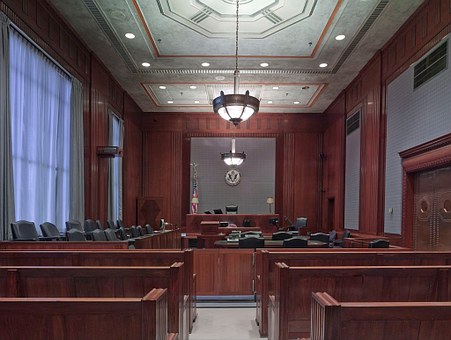This is the first part of the three-part series where we discuss White-collar crimes in India. The first part speaks of the concept, origin and scope of White-collar crimes.
As correctly defined by Herbert Edelhertz, a White-collar crime is an illegal act or series of illegal acts committed by non-physical means and by concealment or astuteness, to obtain money or property, to avoid the payment or loss of money or property, or to obtain business or personal advantage. Such acts are committed by officials and are hence called White-collar crimes. A White-collar refers to such an individual whose work is primarily concerned with the application of knowledge rather than the exertion of physical labour.
The concept of White-collar crimes was largely developed by sociologists and criminologists in the 20th century. American Sociologist and Criminologist, Edwin Hardin Sutherland was the first to define the term ‘White-Collar crime’ as “crimes committed by people who enjoy the high social status, great repute, and respectability in their occupation”.[1]
The concept, being new, evolved over time. In 1934, Albert Morris asserted the emphasis on the ‘anti-social’ activities committed by individuals occupying a high status. Finally, Sutherland, once again, in 1940, in his book ‘White-collar crime’ emphasized the aspect of breach of trust committed by individuals occupying high status.
The concept of White-collar crime developed simultaneously with another concept of Blue-collar crime, which has been defined as a crime of a ‘general nature’. The Supreme Court, in the case of State of Gujarat v. Mohanlal Jitamalji Porwal and Anr[2] attempted to differentiate the two concepts, wherein it stated that while Blue-collar crimes may occur unintentionally or in the heat of the moment, a White-collar crime is committed with cool calculation and deliberate design with an eye on personal profit regardless of its consequences to the community at large.
In India, White-collar crimes have been frequently committed by politicians and businessmen. The 2G scam and the Coal Gate scam are certain examples of high-scale White-collar crimes. The offence, however, came into the limelight upon the scandals committed by fugitive business tycoons Vijay Mallya and Nirav Modi, involving frauds amounting to an estimation of roughly Rs. 9000 cr and Rs. 24000 cr respectively.
This necessitated the government to enact the Fugitive Economic Offenders Act in 2018 to deter such offenders from evading the process of law in India by staying outside its jurisdiction.
The laws governing White-collar crimes in India are provided below and a detailed analysis of the same will be made in Part 3 of this article series:
- Indian Penal Code (IPC) 1860 and Code of Criminal Procedure (CrPC) 1973;
- Prevention of Money Laundering Act and Rules 2002;
- Prevention of Corruption Act, 1988;
- Income Tax Act, 1961; &
- Companies Act 2013.
Corrida Legal is the preferred corporate law firm in Gurgaon (Delhi NCR) and Mumbai. Reach out to us on LinkedIn or contact us at contact@corridalegal.com/+91-9211410147 in case you require any advice or clarification(s) regarding White-collar crimes in India.


